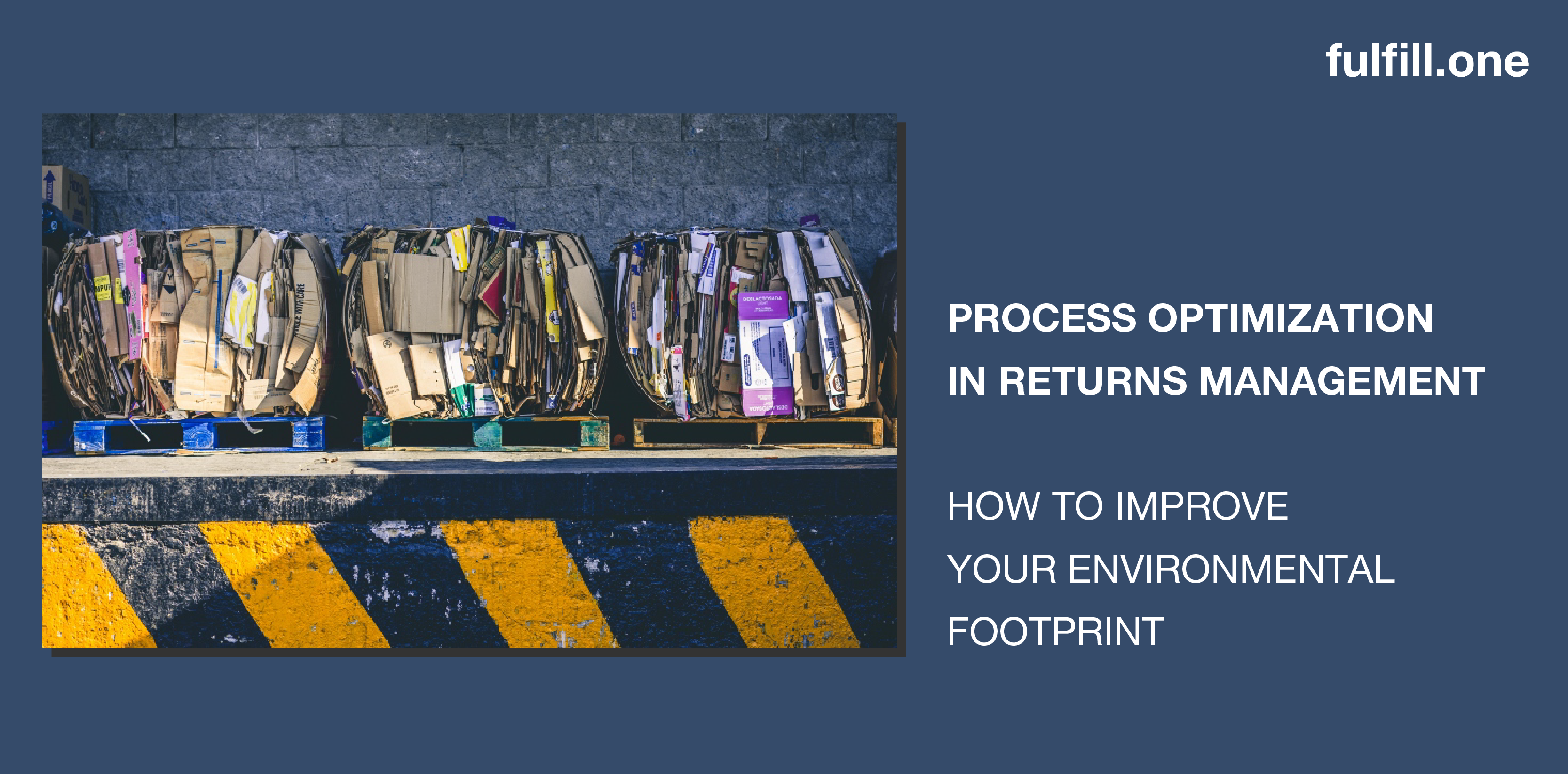
And the clock is ticking. So what should (online) retailers look out for in terms of sustainability and social responsibility in the future?
RETURNS MANAGEMENT CENTRAL COMPONENT OF DIGITAL TRADE
The growing volume of parcels, the ever-increasing consumption of resources and emissions, rising returns rates and the complex destruction of returned goods are serious side effects of online retailing. However, returns cannot be avoided in retail – online as well as stationary. More than a third of online shoppers order goods with the intention of returning them. As a result, 11 percent of all Internet purchases are returns. Too many. Because a large proportion of these returns never make it back to the store at all. Across Europe, every second product that can no longer be classified as A-goods and offered accordingly is destroyed or recycled.
The fact that so many products are returned at all is partly due to the fact that it has never been easier to return orders – and in some cases even free of charge. However, free of charge is misleading for the consumer. Because “free” deliveries are never free. Planning, managing and controlling returns are resource-intensive and costly. At the same time, however, flows of goods, finances and information must be calculated efficiently, cost-effectively and in a customer-oriented manner. Shipping and return costs are always included in the product price.
BETTER SUPPORT AND RAISE AWARENESS FOR THE CAUSE
Environmental balance, sustainability, ethics and the ecological footprint – the mass of returns is no longer in any healthy relation to the effort, revenue and social responsibility. Shipping, including returns, urgently needs greater awareness. Both on the customer side and from the store operator’s point of view.
No (online) retailer wants to see more restraint in shopping. Rather, it’s about shopping more consciously. And the will among customers is there. According to a YouGov study, a good two-thirds of Germans would like to see better sustainability concepts for online retail. It should be climate-neutral and transparent. The material and type of packaging – recyclable and reusable – can make consumers aware of the ethical perspectives and sensitize them accordingly. For example, retailers could offer a reusable system for shipping packaging. According to a bitkom survey, 86 percent of online shoppers would use reusable cartons.
In addition to multiple packaging made of cardboard boxes, plastic shipping bags are also a good approach. The ordered goods are shipped in these instead of in a cardboard box or shrink-wrapped in plastic film. The shipping bag is then folded and returned to the store – whether as a return or unfilled. The bag is then reprocessed so that the (online) retailer can pack and ship the next order in it. Alternatively, deposit packaging could also be offered.
However, sustainability is a learning process. Retailers must accompany, sensitize and educate customers in their decision. This also takes the wind out of the sails of bad customer reviews (for example, due to damaged, second-hand packaging) at an early stage.
OPTIMIZE INFORMATION MANAGEMENT AND PRODUCT PRESENTATION
Online shoppers would return far fewer orders if retailers provided more information about the environmental footprint of a return. According to an inRiver study, 57 percent of online shoppers see a need for clarification here. However, information management itself starts much earlier – namely with the product and its presentation. Reasonable and high-resolution photos, meaningful descriptions and measurements such as size, width et cetera. After all, haptics and trying on or trying out are missing in online shopping. AI technologies such as “virtual reality” or “augmented reality” are also conceivable. And in 2021, they will no longer be witchcraft. Detailed product descriptions and presentations, 360-degree views, or even augmented and virtual reality can help avoid many blind and incorrect orders and minimize returns. The more data, facts, and information are available about a product, the fewer surprises await the customer at home.
SOCIAL COMPATIBILITY AND E-COMMERCE ARE NOT MUTUALLY EXCLUSIVE
A change in thinking can be seen in the e-commerce sector. Retailers and consumers alike are becoming more and more aware of their social responsibility. But ecological sustainability and socially responsible returns management are learning processes. This takes time. However, retailers can support their customers, sensitize them to the issue and, if necessary, “shape” them a little now and then. Retailers and companies can also learn and benefit from their customers. Via “data sourcing,” for example. Collect and evaluate as much information as possible throughout the entire returns process. The more data that can be converted into relevant information, the more detailed it is possible to find out why goods or complete orders are actually returned.
WE ARE LOOKING FORWARD AND EXCITED FOR 2021
Speaking of anticipation: As you may have already noticed, we moved to a new location this year.
With the move, we’re not only investing in a significantly larger space. We are also positioning ourselves even better for the future.
So we can deliver our usual performance and more in the new year.
So that your e-commerce orders and processes continue to be in good hands – one solution, full options.
ONE SOLUTION – FULL OPTIONS
You have questions? Let’s talk.



